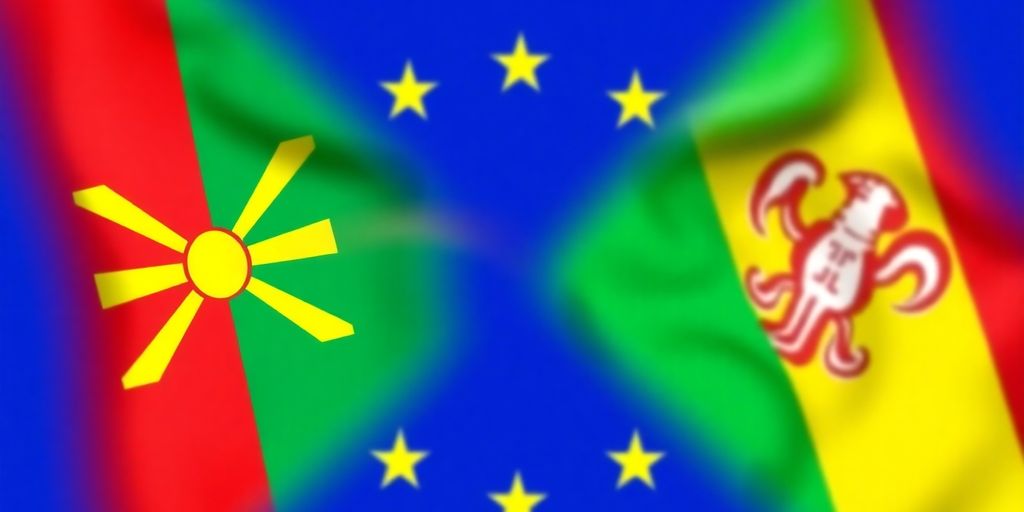The recent election of a new government in Bulgaria has garnered significant attention from North Macedonia’s media, particularly in the context of ongoing EU accession negotiations. With Prime Minister Zhelyazkov at the helm, expectations are high for constructive dialogue between the two nations, especially regarding constitutional changes that North Macedonia has yet to implement.
Key Takeaways
- North Macedonia’s media closely monitors Bulgaria’s new government.
- Expectations for bilateral talks focus on constitutional changes.
- Georg Georgiev, Bulgaria’s new foreign minister, is a key figure in future negotiations.
- Analysts express cautious optimism about the potential for improved relations.
New Bulgarian Government Overview
On January 12, 2025, Bulgaria elected a new government led by Prime Minister Zhelyazkov. This development is seen as a pivotal moment for North Macedonia, which has been waiting for a stable political counterpart in Sofia to resume discussions on EU accession. Headlines in North Macedonia reflect a mix of hope and skepticism, with questions about whether this government will be a constructive interlocutor.
Expectations From The New Government
The Mickoski administration in North Macedonia is particularly focused on negotiating constitutional changes that would facilitate the start of EU accession talks. Prime Minister Mickoski and Foreign Minister Timco Mucunski have both indicated that they are eager to engage with the new Bulgarian government, emphasizing the need for a political government in Sofia to move forward.
Georg Georgiev: A Key Player
Georg Georgiev, the newly appointed Bulgarian foreign minister, is under scrutiny as he steps into a role that could significantly impact relations with North Macedonia. His previous experience as deputy foreign minister during a period of strained relations raises questions about his approach to negotiations. Georgiev has been vocal about Bulgaria’s stance on historical issues, which could complicate discussions.
Media Perspectives
North Macedonia’s media has been actively discussing the implications of Bulgaria’s new government. Former ambassador Marian Gyorchev believes that the new administration will provide a clearer understanding of Bulgaria’s positions, which have historically been divided among various political factions. He emphasizes the importance of aligning discussions with European values and the need for constructive proposals to enhance bilateral relations.
Challenges Ahead
Despite the optimism surrounding the new government, analysts caution that significant challenges remain. Journalist Zoran Bojarovski warns that if the Bulgarian government maintains its current stance, it may be unrealistic to expect changes regarding the inclusion of Bulgarians in North Macedonia’s constitution. The ongoing impasse reflects deeper historical tensions that could hinder progress.
Conclusion
As North Macedonia looks to the future, the new Bulgarian government presents both opportunities and challenges. The potential for constructive dialogue hinges on the willingness of both sides to engage in meaningful negotiations. With the EU accession process at stake, the coming months will be crucial for shaping the relationship between these neighboring countries.






